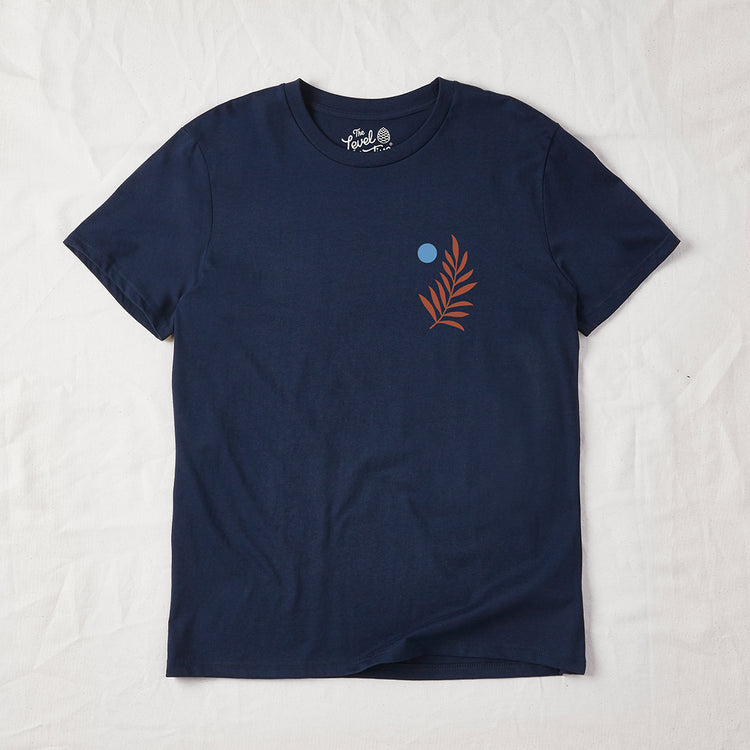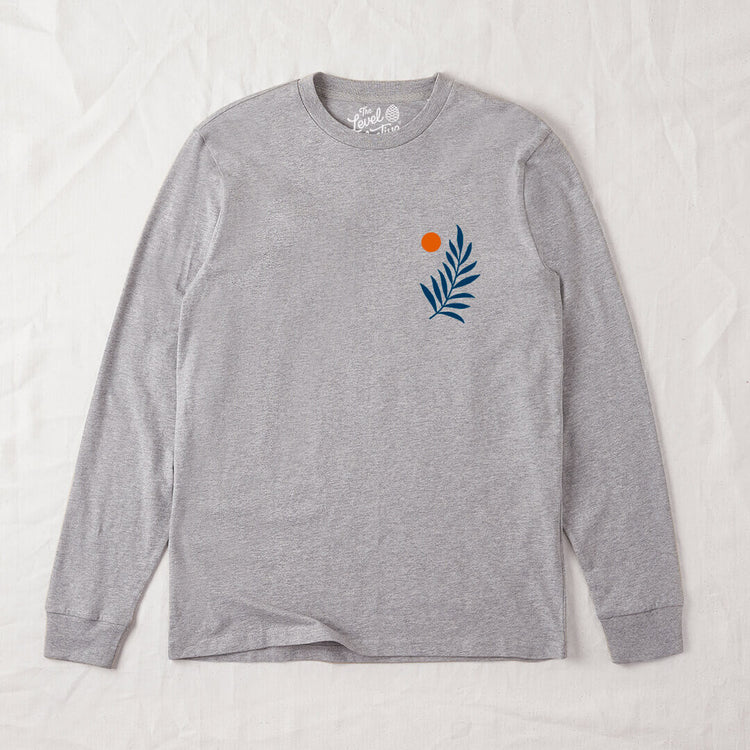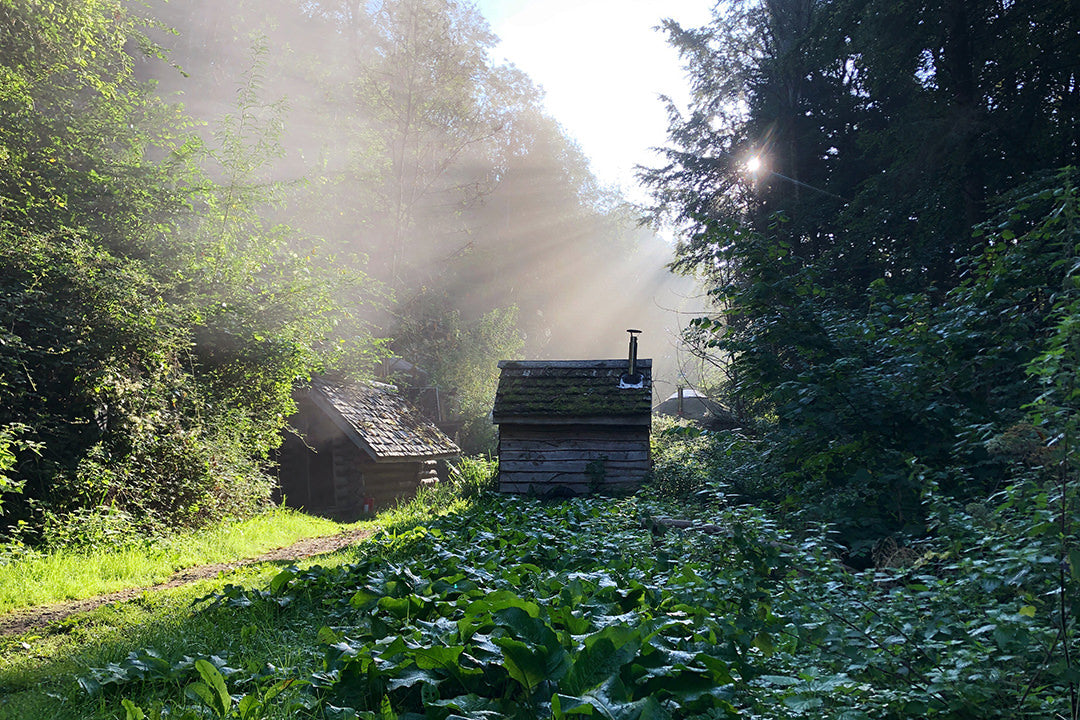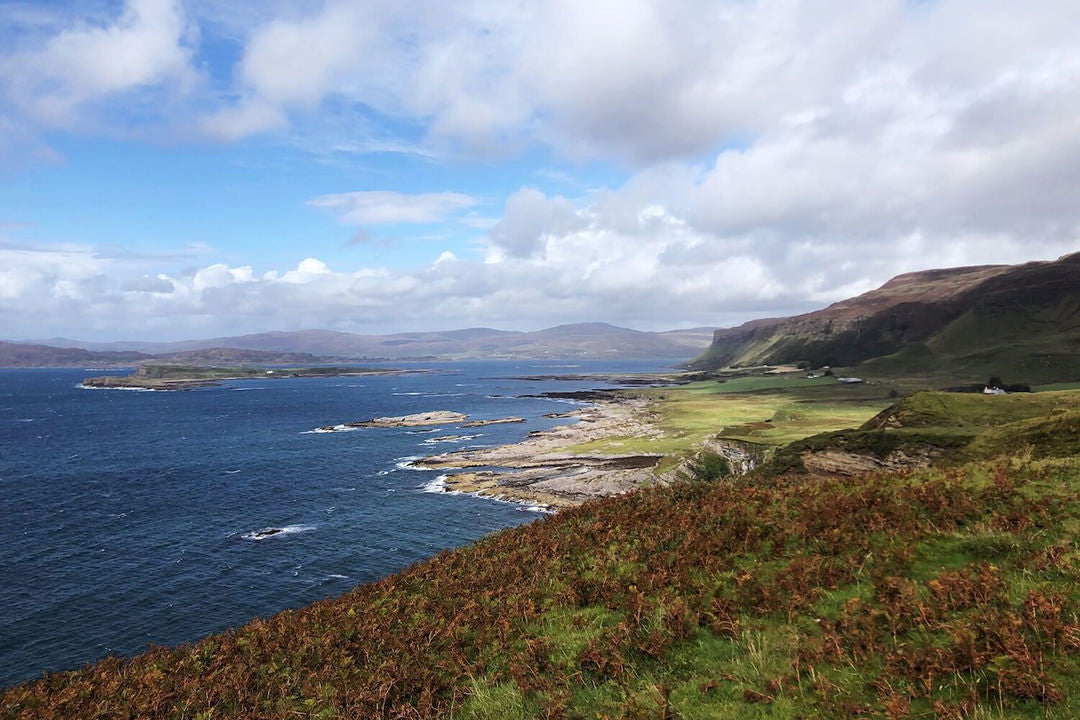Why Organic Cotton?
We only ever use GOTS certified organic cotton in our backpacks, T-shirts and sweaters, and for good reason. It might cost a little more, but it won’t cost the earth.
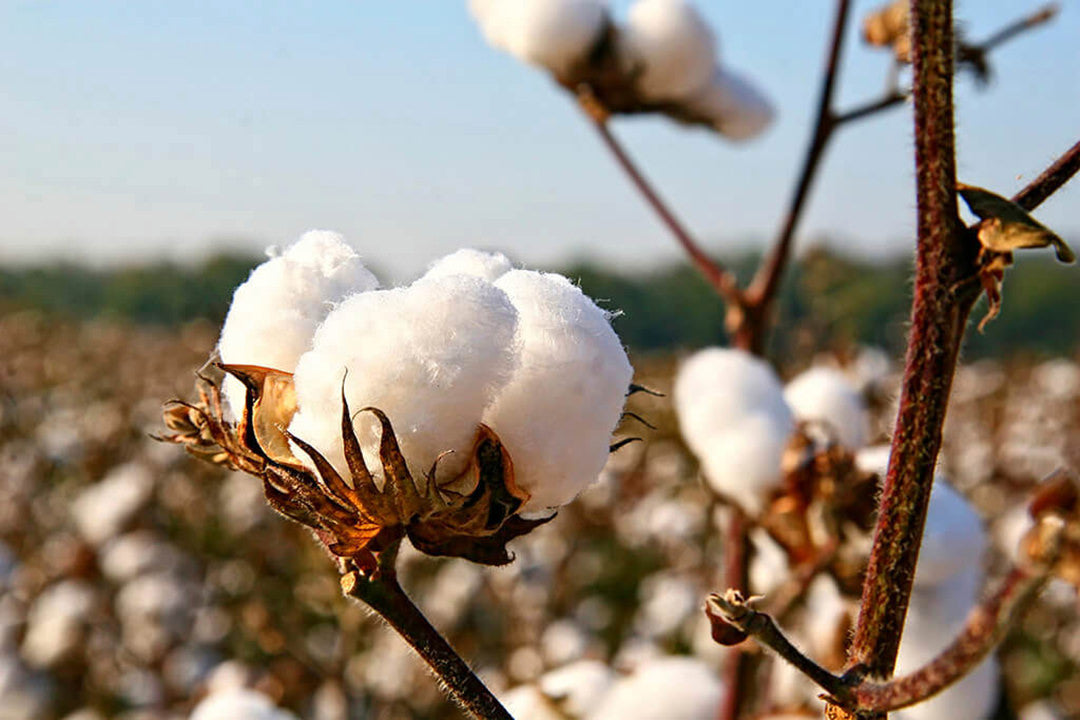
Looking after the planet and the good people on it is central to our ethos – plus, of course, designing and making the finest sustainable product we can.
We never compromise, and the materials we use are at the heart of everything. They must be durable, practical and beautiful – and socially and environmentally responsible. So, for us, GOTS certified organic cotton is a natural choice. In fact it’s one of the most versatile and sustainable materials you can buy.
Non-organic: non-beneficial
It might sound obvious to most, but cotton is grown in a field. It all starts in and with the soil. The fluffy fibre is then picked and spun into a thread. Once woven into material, it is light, breathable, easy to work with and easy to wear. That’s why more than half the clothes sold in the UK are made from cotton.
But, most are made using non-organic cotton – and that’s not good for anything.
Non-organic cotton uses genetically modified seeds, pesticides, insecticides and herbicides. In fact, as much as 25% of the world’s insecticides and more than 10% of the world’s pesticides. These hazardous synthetic chemicals are widely damaging to ecosystems, they contribute to climate change, poison waterways and endanger workers who can’t always afford the safety equipment needed to protect them. Devastatingly, according to the World Health Organisation, an estimated 20,000 deaths each year are down to pesticide poisoning in developing countries.
Non-organic cotton also uses vast volumes of water, mainly because it is irrigated rather than rain fed. It takes tens of thousands of litres of water to produce 1kg of non-organic cotton – the equivalent of a single T-shirt. While, on average, around 9000 litres of water is saved per cotton T-shirt by using organic methods.

So, what’s the point of non-organic cotton?
The simple answer is: not much. It has even been dubbed ‘the world’s dirtiest crop’.
Non-organic cotton – or ‘conventional cotton’, as it's termed in the fast-fashion industry – is produced with one objective in mind: maximum yield. The plants are generally bigger and the yield often better. Sadly, though, working conditions are often unethical and unregulated, so people get paid poorly, work in poor conditions, and product quality standards are not in place.
And all because it’s cheaper to produce. And buy. It’s a race to the bottom. Hide the harm, promote the positives. Yet the damage is widespread. You just won’t see it on the price tag.

Better for the planet
On the other, far better hand, organic cotton is produced in harmony with nature, for the benefit of people and the planet. Again, it all starts with the soil.
Farmers prioritise looking after the earth beneath our feet, with systems in place to replenish and maintain soil fertility. Techniques like crop rotation, green manures and composting produce healthy soils, which lead to healthier harvests.
The farmers also make the most of natural weather systems and seasonal cycles, rather than relying on carbon-heavy synthetic fertilisers and pesticides to keep-up with demand. And, because these toxic hazardous substances are banned, waterways are cleaner and biodiversity is boosted.
Also, far less water is used in producing the organic cotton, thanks to the healthy soil. The soil acts like a sponge, not only soaking up water during floods and holding it for longer in times of drought, but it locks in carbon dioxide, helping mitigate climate change.
What’s not to like?

Better for farmers
Organic cotton farming isn’t just better for the environment: farmers and their families benefit too.
Other crops are always grown alongside the cotton. It helps maintain a balanced ecosystem on the farms, keeping soils healthy, encouraging wildlife and protecting the topsoil.
These crops also provide farming families and their communities with a more stable, accessible, abundant and diverse food supply – and another source of income.
Win, win.

Better, from farm to factory
Today, there are still farmers and factory workers the world over struggling to survive under harsh working conditions. Together, we can help to put that right.
By purchasing organic cotton products which are GOTS (Global Organic Textile Standard) certified, you know that the farmers and workers are paid a fair living wage and work in fair conditions.
So, the GOTS certification doesn’t only show that the cotton has been grown in an organic way, but also that it’s been manufactured in a socially and environmentally responsible way too.
Naturally, then, all of our cotton, which is grown in India, is 100% GOTS certified. And the factory in Bangladesh that produces our garments has been approved by the Fair Wear Foundation – a third party organisation who ensure safe working conditions, fair wages and the right to form a workers union.
 |
 |
Better for you
Last, but certainly not least – in fact, it’s the cherry on the cake: organic cotton is far better for you. The high production standards mean the fibre is of a better quality, it’s stronger and more resilient, and it will last far longer than non-organic. And, because no synthetic chemicals have been used in growing the cotton, it’s naturally hypoallergenic, so it’s softer and safer for your skin, and won’t cause allergies or irritation.
Plus, it won’t irritate your moral compass either.
Fairness is our foundation. Make it yours.

View Roll Top Backpacks

View Organic T-shirts

View Organic Sweaters

Dan Fowler
More adventures
Making a wooden surfboard
A little while ago, I headed to the rugged north coast of Cornwall to spend a week making my own wooden surfboard...like you do. It'd been on my bucket list to do an Otter Surfboards workshop for...well, since I found out that it existed! I met the wonderful human that is founder James Otter at the Do Lectures back in 2015. We became good pals and all the more so since we upped sticks from Sheffield and moved down to Cornwall in early 2019. There's a few more waves rolling in down here than in the Peak District you see....
Forest living
Ahead of moving house and becoming parents, we were well ready for some downtime. So we escaped to Campwell Woods for a few nights...
Our Time to Mull
It was a spur of the moment thing. We were staying in the van, just making it up as we went along. So, with no expectations, we booked ferry tickets across to the Isle of Mull.Kudhva: 'Hideout'
Kudhva means 'Hideout' in Cornish. Tucked away on the north coast of Cornwall, we couldn't wait to get a taste of the hidden treasure for ourselves.


